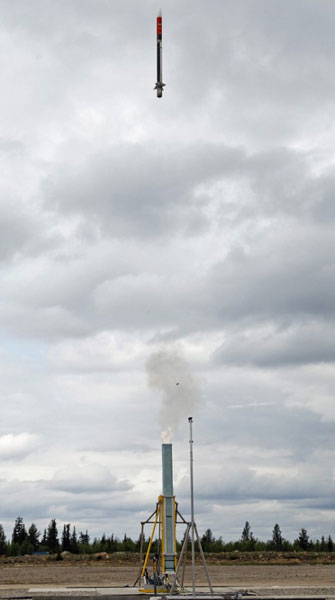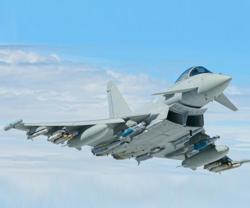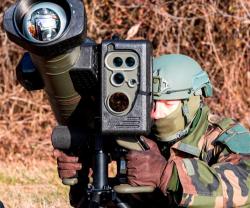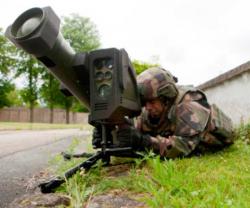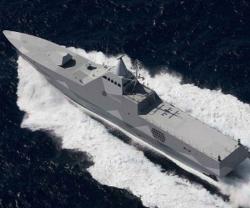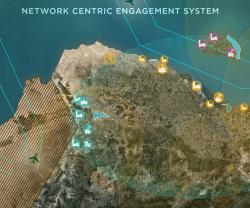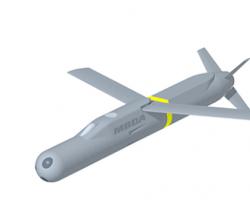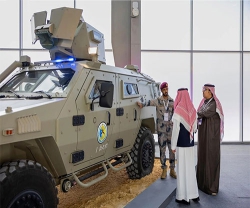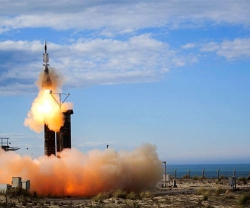MBDA carried out two successful guided firings by the Sea Ceptor air defence system on 29th May and 5th June at the land-based Vidsel range facilities in Sweden.
These firings were the first seeker guided firings for the Common Anti-air Modular Missile (CAMM), including using its two-way data link to communicate with the Sea Ceptor system.
The trial demonstrated the functionality of Sea Ceptor’s Command and Control (C2) system and its ability to process data from a third party radar and then command an engagement by a CAMM missile.
The CAMMs both performed as expected, with their active Radio Frequency (RF) seeker acquiring the targets shortly after launch and staying in track until they intercepted their respective targets.
CAMM is to be used by the Royal Navy and Royal New Zealand Navy in the Sea Ceptor system and the British Army with the Future Local Area Air Defence System (FLAADS) Land system.
Dave Armstrong, Group Director for Short & Medium Range Missiles welcomed the results saying, “The success of these two firings is a major step forward for the Sea Ceptor programme and the CAMM missile, and directly benefits the associated FLAADS Land equivalent. It is also instrumental in proving that the UK MOD’s Portfolio Management Agreement with MBDA can develop complex weapons through the use of commonality and modularity, and do so in an affordable manner.”
Sea Ceptor secured its first export order with the signing of a contract on 21st May 2014 for the Royal New Zealand Navy. FLAADS Land entered its Assessment Phase with the signing of a contract with the UK Ministry of Defence on 22nd January 2014.
These firings build on a previous campaign of successful CAMM instrumented firings completed in April 2013, as well as extensive seeker data gathering trials.
The Portfolio Management Agreement (PMA) between the UK MOD and MBDA provides a contractual framework for the long-term acquisition of the UK’s Complex Weapon (CW) military capability, which aims to improve flexibility and reduce cost. It provides CW military capability to the UK Armed Forces with Freedom of Action and Operational Advantage, allowing them to maintain an edge over adversaries now and in the future. The PMA also ensures the skills and technologies critical for this are maintained in the UK.
Commonality is the development of common weapon solutions to satisfy multiple project and/or Customer requirements. This significantly reduces both recurring and development costs. Modularity is the sharing of modules, subsystems and technologies between projects, thus reducing both recurring and development costs.

